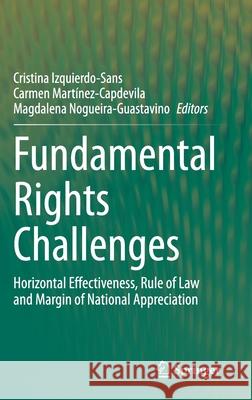Fundamental Rights Challenges: Horizontal Effectiveness, Rule of Law and Margin of National Appreciation » książka
topmenu
Fundamental Rights Challenges: Horizontal Effectiveness, Rule of Law and Margin of National Appreciation
ISBN-13: 9783030727970 / Angielski / Twarda / 2021 / 298 str.
Fundamental Rights Challenges: Horizontal Effectiveness, Rule of Law and Margin of National Appreciation
ISBN-13: 9783030727970 / Angielski / Twarda / 2021 / 298 str.
cena 562,23
(netto: 535,46 VAT: 5%)
Najniższa cena z 30 dni: 539,74
(netto: 535,46 VAT: 5%)
Najniższa cena z 30 dni: 539,74
Termin realizacji zamówienia:
ok. 22 dni roboczych.
ok. 22 dni roboczych.
Darmowa dostawa!
Kategorie:
Kategorie BISAC:
Wydawca:
Springer
Język:
Angielski
ISBN-13:
9783030727970
Rok wydania:
2021
Wydanie:
2021
Ilość stron:
298
Waga:
0.61 kg
Wymiary:
23.39 x 15.6 x 1.91
Oprawa:
Twarda
Wolumenów:
01
Dodatkowe informacje:
Wydanie ilustrowane











